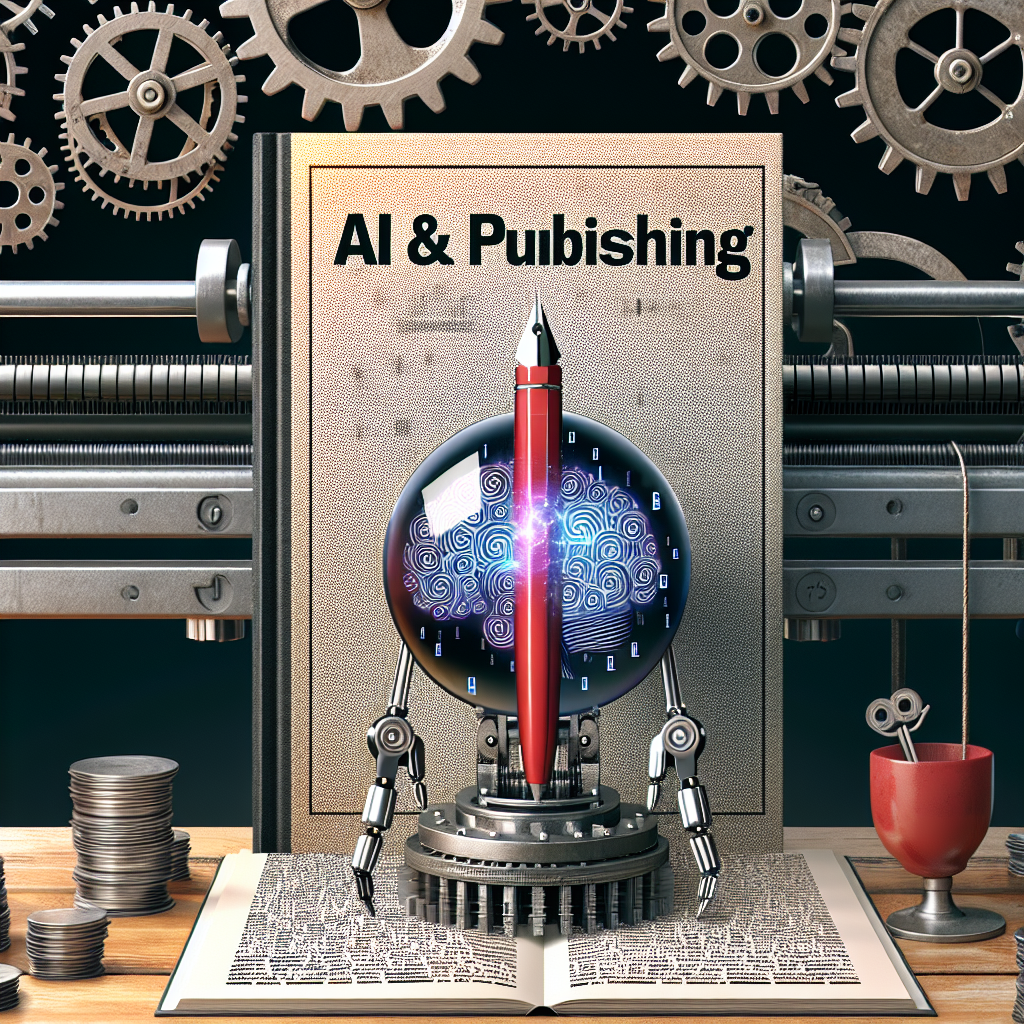The Influence of AI in Book Publishing: From Automated Editing to Predictive Analytics
In recent years, the publishing industry has seen a significant shift in the way books are produced and marketed, thanks to the advancements in artificial intelligence (AI) technology. From automated editing to predictive analytics, AI is revolutionizing the way books are created, edited, and marketed. In this article, we will explore the various ways in which AI is influencing book publishing and how it is changing the landscape of the industry.
Automated Editing
One of the most significant ways in which AI is impacting book publishing is through automated editing. Traditionally, editing a book was a time-consuming and labor-intensive process that involved multiple rounds of revisions and proofreading. However, with the advent of AI-powered editing tools, the editing process has become much faster and more efficient.
AI editing tools use natural language processing algorithms to analyze the text and identify errors in grammar, punctuation, and spelling. These tools can also provide suggestions for improving the clarity and readability of the text, making the editing process more streamlined and effective.
By using AI editing tools, publishers can significantly reduce the time and cost involved in editing a book, allowing them to bring more books to market faster. Additionally, AI editing tools can help improve the overall quality of the book, ensuring that it meets the high standards expected by readers.
Predictive Analytics
Another way in which AI is influencing book publishing is through predictive analytics. Predictive analytics involves using machine learning algorithms to analyze data and make predictions about future trends and outcomes. In the context of book publishing, predictive analytics can be used to forecast sales trends, identify emerging genres or topics, and target specific audiences more effectively.
By analyzing past sales data, reader behavior, and market trends, publishers can use predictive analytics to make more informed decisions about which books to publish and how to market them. This can help publishers minimize risks and maximize the success of their books.
For example, predictive analytics can help publishers identify which genres are trending and which topics are likely to resonate with readers. This information can be used to guide editorial decisions and marketing strategies, ensuring that publishers are producing books that are in demand and appealing to their target audience.
In addition to helping publishers make more strategic decisions, predictive analytics can also be used to personalize the reading experience for individual readers. By analyzing reader data and preferences, publishers can recommend books that are tailored to each reader’s interests, increasing the likelihood of a successful book sale.
Overall, predictive analytics is helping publishers stay ahead of the curve and make data-driven decisions that can lead to greater success in the competitive book publishing industry.
FAQs
Q: How is AI changing the role of editors in the book publishing industry?
A: AI is changing the role of editors by automating many of the tasks that were previously done manually. Editors are now able to focus more on higher-level editing tasks, such as content development and stylistic editing, while AI tools handle the more routine tasks like grammar and spelling checks.
Q: Can AI really predict which books will be successful?
A: While AI can provide valuable insights and predictions based on data analysis, there is still an element of unpredictability in the book publishing industry. Factors such as reader preferences, market trends, and cultural influences can all impact the success of a book.
Q: Are there any ethical concerns around the use of AI in book publishing?
A: There are some ethical concerns around the use of AI in book publishing, particularly around issues of privacy and data security. Publishers must ensure that they are using AI tools responsibly and transparently, and that they are protecting the privacy of their readers’ data.
Q: How can authors benefit from AI in book publishing?
A: Authors can benefit from AI in book publishing by using AI editing tools to improve the quality of their writing, and by leveraging predictive analytics to better understand their target audience and market their books more effectively. Additionally, AI can help authors identify emerging trends and topics that may be of interest to readers.
In conclusion, AI is having a profound impact on the book publishing industry, from automated editing to predictive analytics. By leveraging AI technology, publishers can streamline their processes, make more informed decisions, and ultimately produce books that are more successful in the market. As AI continues to evolve and improve, we can expect to see even more innovations in book publishing that will shape the future of the industry.

